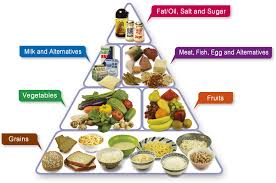The Importance of Prioritizing Your Health: Simple Tips for a Healthier Life
Health is one of the most precious assets we have, yet it's often taken for granted until we face a health challenge. Whether it's physical, mental, or emotional, our overall well-being plays a crucial role in how we live and enjoy life. But with our busy schedules and fast-paced world, it's easy to neglect our health in favor of work, social commitments, and other priorities. The good news is that with a few simple lifestyle changes, we can significantly improve our health and feel better overall. In this blog, we will explore some easy and effective ways to prioritize your health and create habits that will serve you for a lifetime.
1. Start Your Day with a Healthy Breakfast
One of the best ways to fuel your body for the day ahead is by having a nutritious breakfast. Breakfast is the most important meal of the day, as it gives your body the energy and nutrients it needs to kickstart your metabolism and get going. Skipping breakfast can lead to energy slumps, overeating later in the day, and poor food choices.
Some great options for a healthy breakfast include:
- Oatmeal topped with berries, nuts, and a drizzle of honey
- Whole-grain toast with avocado, eggs, and a side of fruit
- A smoothie with spinach, banana, protein powder, and almond milk
2. Stay Active: Find a Fitness Routine You Enjoy
Exercise isn't just for people trying to lose weight or build muscle. It's essential for everyone, regardless of age, to maintain physical activity for overall health. Regular exercise improves cardiovascular health, strengthens muscles and bones, boosts mood, and reduces stress. The key is to find an activity you enjoy so that it doesn't feel like a chore.
If you're not sure where to start, try:
- Walking or jogging outdoors for 20-30 minutes a day
- Joining a fitness class, such as yoga or cycling
- Dancing to your favorite music at home
- Trying strength training exercises with resistance bands or dumbbells
Start small, and aim to gradually increase your activity level as it becomes a part of your routine.
3. Make Time for Mental Health
Mental health is just as important as physical health, yet it's often overlooked. Stress, anxiety, and depression can take a significant toll on your well-being, affecting everything from your mood to your physical health. It's essential to find ways to manage stress and take care of your mental health daily.
Some tips for supporting your mental health include:
- Practicing mindfulness or meditation for just 10-15 minutes a day
- Journaling your thoughts and emotions to gain clarity
- Taking breaks throughout the day to relax and recharge
- Connecting with a friend or loved one regularly
If you're struggling with your mental health, don't hesitate to reach out for professional support. Therapy or counseling can make a huge difference in your well-being.
4. Eat a Balanced Diet
The foods you eat have a profound effect on how you feel and how your body functions. A balanced diet filled with whole, nutrient-dense foods is key to maintaining good health. Incorporating more fruits, vegetables, whole grains, lean proteins, and healthy fats into your meals will give your body the nutrients it needs to thrive.
Here are some tips for improving your diet:
- Focus on eating a variety of colorful fruits and vegetables each day
- Choose whole grains like quinoa, brown rice, and whole wheat bread
- Incorporate healthy fats such as avocados, nuts, and olive oil
- Drink plenty of water to stay hydrated throughout the day
- Avoid processed foods and sugary snacks as much as possible
By making small changes to your diet, you can support your immune system, improve digestion, and increase your energy levels.
5. Get Enough Sleep
Sleep is one of the most important factors for maintaining good health, yet it's often neglected. Lack of sleep can lead to a variety of health problems, including weakened immunity, poor memory, and increased stress levels. Aim for 7-9 hours of sleep each night to allow your body and mind to fully rest and recharge.
To improve your sleep quality:
- Stick to a consistent sleep schedule, even on weekends
- Create a relaxing bedtime routine, such as reading a book or listening to calming music
- Avoid screens (phone, computer, TV) at least 30 minutes before bed
- Keep your bedroom cool, dark, and quiet
Sleep is when your body repairs itself and your mind processes emotions, so make it a priority in your health journey.
6. Stay Hydrated
Drinking enough water throughout the day is essential for overall health. Water helps regulate body temperature, supports digestion, and keeps your skin healthy. Dehydration can lead to fatigue, headaches, and difficulty concentrating, so make sure you're staying hydrated.
A good rule of thumb is to drink at least 8 glasses (64 ounces) of water per day, but individual needs may vary. You can also get hydration from other beverages like herbal teas, and foods like watermelon, cucumbers, and oranges.
7. Limit Alcohol and Tobacco Consumption
While enjoying a glass of wine or cocktail occasionally is fine, excessive alcohol and tobacco use can have a major impact on your health. Drinking too much alcohol can lead to liver damage, impaired judgment, and an increased risk of certain cancers. Smoking and using tobacco products are linked to lung disease, heart disease, and cancer.
If you're trying to improve your health, consider cutting back on alcohol or quitting smoking. If you're not sure where to start, seek support from healthcare professionals or join a support group for guidance.
8. Routine Health Check-ups
Prevention is always better than treatment. Regular check-ups with your doctor allow you to catch potential health issues early, before they become serious problems. Routine screenings, such as blood pressure checks, cholesterol tests, and cancer screenings, can help identify risks and ensure you're on track for a healthy future.
Even if you're feeling fine, schedule regular appointments with your healthcare provider to stay proactive about your health.
Your health is your greatest asset, and taking care of it is essential for living a long and fulfilling life. By making small, consistent changes in your lifestyle—such as eating well, staying active, managing stress, and getting enough sleep—you can improve your physical and mental well-being. Prioritize your health today, and you'll reap the benefits for years to come.
Remember, small steps lead to big changes. Start with one healthy habit at a time, and gradually build a routine that works for you. Your future self will thank you!


Comments
Post a Comment